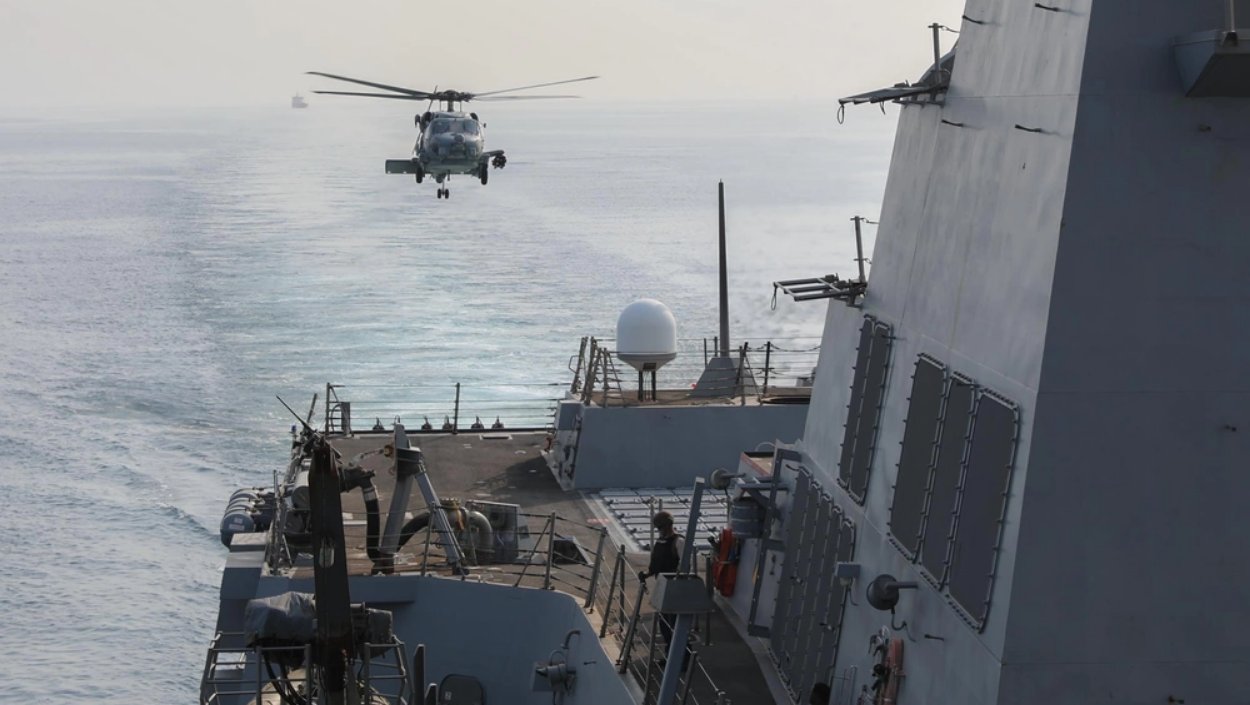

The U.S. military is weighing whether or not to station Marines and Navy personnel on commercial oil tankers traveling through the Strait of Hormuz, the Associated Press reported this week.
The plan, which the Associated Press attributed to five anonymous officials, would see armed U.S. Navy sailors and Marines put onto commercial vessels like oil tankers to provide additional security against potential hijackings by Iranian ships. Such security assistance would happen only if the ships requested it, the report said.
When asked by Task & Purpose about the report, Pentagon spokesperson Gen. Pat Ryder did not outright confirm nor deny any information on the Associated Press reporting. He pointed to his Aug. 3 press briefing, where he said he had nothing to provide on that story. He said that U.S. military assets already in the Persian Gulf or on their way there would be stepping up the “tempo” of the patrols and provide quicker security and deterrence to any potential attempt to seize oil tankers.
Subscribe to Task & Purpose Today. Get the latest military news and culture in your inbox daily.
The Associated Press report comes as several Navy ships — including the amphibious assault ship USS Bataan and landing ship USS Carter Hall — were en route to the Middle East, carrying the 26th Marine Expeditionary Unit.
The United States military has already been stepping up its presence and patrols in the Persian Gulf region. Last month the military announced several deployments in response to Iranian interference in the area. That included sending more F-16 and F-35 fighter jets to the region, which joined previously deployed A-10 Warthogs. The Navy destroyer USS Thomas Hudner also recently arrived in the Middle East.
The U.S. Navy says that since 2021 at least 20 vessels have been attacked or harassed by Iranian ships in the area. In July Iranian Navy ships twice tried to hijack vessels passing through the Strait of Hormuz, which is one of the main routes for oil tankers. The Iranian ships were repelled, deterred by the presence of the U.S. military.
The U.S. and its partners have intercepted several ships linked to Iran as well, which have been carrying weapons or explosive material bound for countries such as Yemen, where Iran is supporting one party in that nation’s civil war.
At the Aug. 3 briefing, Ryder added that “it’s important to see it through the lens of we’re not doing this by ourselves, we’re doing this as part of a coalition in the region, to ensure that the Strait of Hormuz remains open, that there’s freedom of navigation, and that we’re deterring any type of maligned activity.”
The latest on Task & Purpose
- Air Force shows off its Rapid Dragon cruise missile system on China’s doorstep
- The Pentagon didn’t refuse to pay $60,000 to fly fallen Marine Nicole Gee to Arlington [Updated]
- Bowe Bergdahl’s court-martial is overturned
- Everything we know about the U.S. Army soldier in North Korea
- Parris Island drill instructor found not guilty of Marine’s death during Crucible